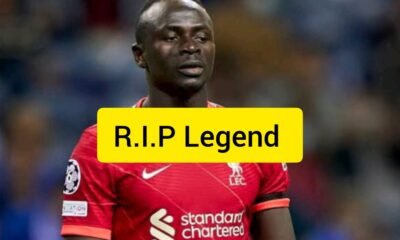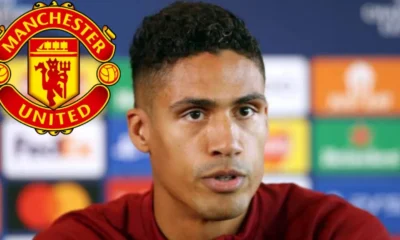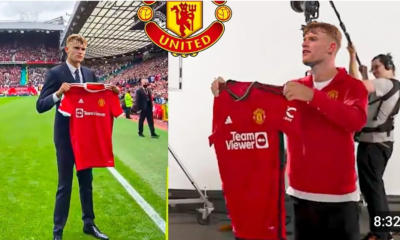Blog
“SHOCKING: Duke’s 2026 Championship Run Ends Early After Star Player’s Stunning Decision—Fans Are FURIOUS!”
SHOCKING: Duke’s 2026 Championship Run Ends Early After Star Player’s Stunning Decision—Fans Are FURIOUS!
In a stunning turn of events that has sent shockwaves throughout the college basketball world, Duke University’s basketball program finds itself at the center of controversy as star player Alex Mitchell announced his unexpected decision to leave the team just days before their highly anticipated NCAA Tournament kickoff. The news, which broke early Monday morning, has left fans, analysts, and teammates reeling, marking a significant moment in Duke’s storied history.
### Context: A Season of High Expectations
The Duke Blue Devils entered the 2026 season with immense expectations, riding on the heels of a successful previous campaign that culminated in a Final Four appearance. Led by head coach Mike Krzyzewski’s protégé and current coach, Jon Scheyer, the Blue Devils had a roster stacked with talent, including Mitchell, who was projected as a top-five NBA draft pick for 2026. As the season progressed, Duke navigated through both the highs and lows, finishing with an impressive 28-5 record, solidifying themselves as favorites to take home the championship.
Fans had every reason to believe this would be the year—the team was built for success, with a deep bench and a mix of seasoned upperclassmen and energetic freshmen. Mitchell’s leadership on the court had been instrumental in several key victories, and his performances had drawn national attention. The sky seemed to be the limit for this talented squad.
### The Decision That Shocked Everyone
However, that optimistic outlook took a drastic turn when news broke that Mitchell had decided to step away from the team for personal reasons, effectively ending Duke’s hopes for a championship run. In a heartfelt video posted on social media, Mitchell explained his decision, citing mental health concerns and the overwhelming pressure that accompanied the season. “This has been an incredibly difficult decision for me,” he said, visibly emotional. “Basketball has been my life, but I need to focus on my well-being. I hope you can understand and support my choice.”
While mental health awareness has made significant strides in recent years, the timing of Mitchell’s announcement has left many fans wondering if there were underlying issues within the program. Some have speculated that the immense pressure of living up to Duke’s legacy, combined with the constant scrutiny of his performance, might have played a role in his decision.
### Fan Backlash and Reactions
As news of Mitchell’s departure spread, social media erupted with a mix of shock, disappointment, and outrage. Fans took to X, Twitter, and various forums to express their feelings. Many expressed empathy for Mitchell, understanding the importance of mental health, while others voiced their frustration over what they perceived as a selfish choice during a critical moment of the season.
One particularly heated thread on Duke’s official fan forum read, “We’ve sacrificed so much for this season; how could he leave us like this?” Others defended Mitchell, asserting that prioritizing mental health should always come first. “This is a serious issue that needs to be talked about, not just brushed under the rug for a game,” another user commented.
The outpouring of emotional responses has highlighted the complex relationship between athletes, pressure, and mental health. Duke, known for its passionate fan base, is now grappling with the duality of supporting a beloved player while mourning the loss of a championship favorite.
### Teammates and Coaching Staff Respond
In the wake of Mitchell’s announcement, the Blue Devils’ coaching staff and teammates have rallied around him, expressing their understanding and support. Coach Jon Scheyer issued a statement praising Mitchell’s contributions to the team and emphasizing the importance of mental health. “Alex is not only a phenomenal player but also a tremendous young man. We respect his decision, and we stand by him during this challenging time,” Scheyer said.
Teammates echoed these sentiments, with senior guard Miles Parker commenting, “We’re all with Alex. He’s family, and family has to come first. We’re going to miss him immensely, but we’re focused on carrying his spirit with us.”
However, the absence of Mitchell leaves a glaring void in the Blue Devils’ lineup. His scoring ability, leadership, and experience were integral to the team’s success. As they prepared for their opening game in the NCAA Tournament, questions arose about how Duke would adapt without their star player.
### The Road Ahead
With Mitchell gone, the Blue Devils must navigate the landscape of the NCAA Tournament without an essential piece of their puzzle. While the depth of the team remains a strong point, they will face immense challenges, starting with their first matchup against a gritty mid-major opponent ranked No. 12. Coaches must devise new strategies to involuntarily bolster the other players’ confidence while adjusting their game plans to accommodate the loss of their leading scorer.
The team’s dynamics can shift significantly without the presence of a key player like Mitchell. The onus falls on other players, such as Parker and sophomore center Daniel Hu, to step up and fill the leadership void. This pivotal moment may become a defining aspect of their careers—a chance to rise to the occasion or falter under the pressure.
### The Impact on College Basketball Culture
This incident has reignited discussions about the overall culture surrounding college athletics, particularly basketball. High-stakes environments can breed intense pressure on student-athletes, often sacrificing their mental health for the sake of performance. Mental health has become an increasingly pressing topic in sports, yet the stigma surrounding it continues to linger.
Sports psychologists and mental health experts have weighed in on the situation, advocating for further emphasis on mental well-being in college sports programs. Dr. Lena Martin, a renowned sports psychologist, stated, “Athletes should feel empowered to prioritize their mental health without fear of backlash. Programs must create supportive environments that encourage open dialogue and understanding.”
Duke’s situation and Mitchell’s decision may prompt the university, along with other programs, to examine their existing support systems for student-athletes. By creating open lines of communication and providing accessible mental health resources, institutions can foster healthier environments for their athletes.
### The Aftermath: What Will Duke Learn?
As the NCAA Tournament unfolds without Alex Mitchell, Duke has a crucial opportunity to rally around this moment and potentially transform the adversity into resilience. The team has a chance to honor their teammate by performing as a collective unit rather than relying on a single star player. This could potentially lead to a narrative that brings the squad closer together while shining a light on the often-ignored struggles of mental health among athletes.
While the championship may seem out of reach without their leading scorer, Duke has proven time and again that it has the heart and talent to overcome obstacles. History has shown that sometimes teams rise from the ashes of adverse situations, creating underdog stories that captivate the hearts of fans nationwide.
### Conclusion: A New Chapter for Duke Basketball
Ultimately, the departure of star player Alex Mitchell serves as both a heartbreaking loss for Duke and a powerful catalyst for change within college athletics. As the Blue Devils step onto the tournament court, they carry with them a blend of emotions—grief, solidarity, determination, and hope.
Mitchell’s decision underscores the critical conversation surrounding mental health and well-being in sports. As Duke endeavors to move past this challenging moment, the legacy left by Mitchell can serve as a reminder that athletes are human too. Their battles extend beyond the court, and by prioritizing mental health, they can pave the way for future generations of athletes to thrive both in and out of their sport.
The story of Duke Basketball in 2026 may have taken an unexpected turn, but it is far from over. As they continue to fight through adversity, they carry the spirit of teamwork and resilience that has defined the program for decades—one game, one player, one determination at a time.
-

 Arsenal1 year ago
Arsenal1 year agoSad News Arsenal ex player who is goal scorer confirmed dead this morning
-

 Liverpool1 year ago
Liverpool1 year agoSad News Sadio Manè Confirmed Dead Today By Sky Sports Reporters, Open For Full Story 👇
-

 Blog11 months ago
Blog11 months ago“I was forcefully removed from Manchester United squad and now I’ve joined the best team in the world…I will revenge and as a result, I’ve ordered my friend who’s their best player currently to leave there with immediate effect and he has agreed”: Former Man United player angered by United decision to removed him from the squad as he ordered the Club’s best player to leave immediately.
-

 Blog9 months ago
Blog9 months agoSad News: Manchester United player died when playing for his country England yesterday 😢 😔
-

 Blog1 year ago
Blog1 year agoR.I.P: Formal Real Madrid and France international confirm death this morning
-

 Chelsea1 year ago
Chelsea1 year agoBreaking New:”Roman Abramovich could get Chelsea back”? Chelsea owner review the conversation between him and Roman Abramovich in. Deal about getting Chelsea back
-

 Blog1 year ago
Blog1 year agoUNBELIEVABLE: Manchester City midfielder KELVIN DE BRUYNE divorced wife this morning after DNA test revealed their 5 years old son belongs to formal Manchester United player
-

 Manchester United12 months ago
Manchester United12 months agoOFFICIAL NOW: Manchester United announce the signing of 23yr sensational player after beating Liverpool and Madrid for His signature, agreement reached on a 5yr deal, Medical completed – announcement ongoing












